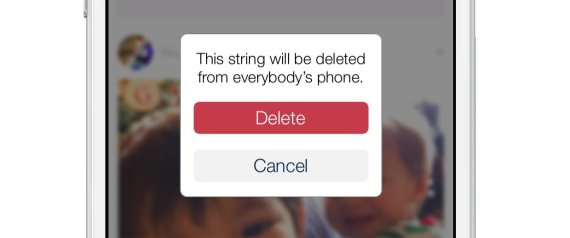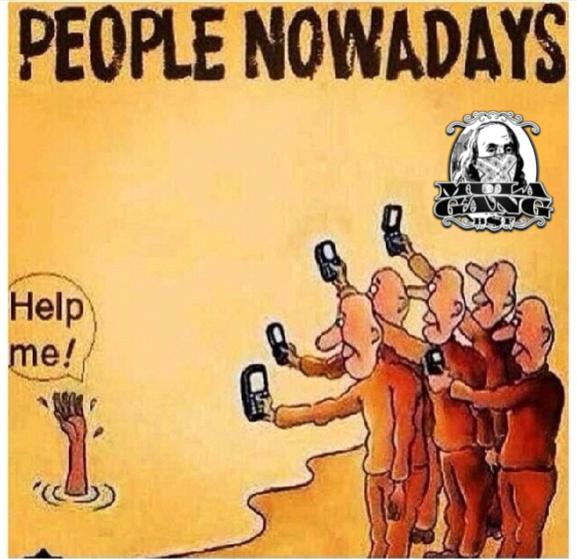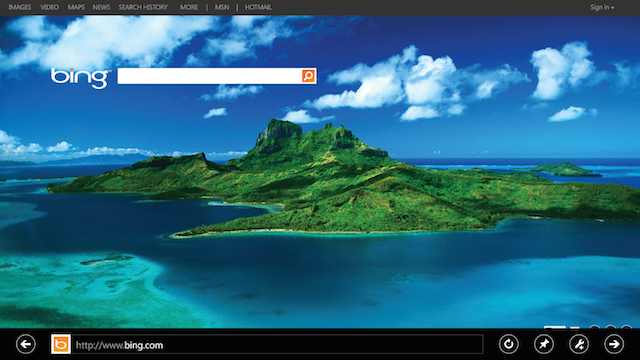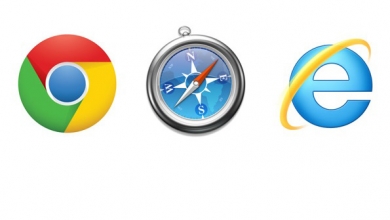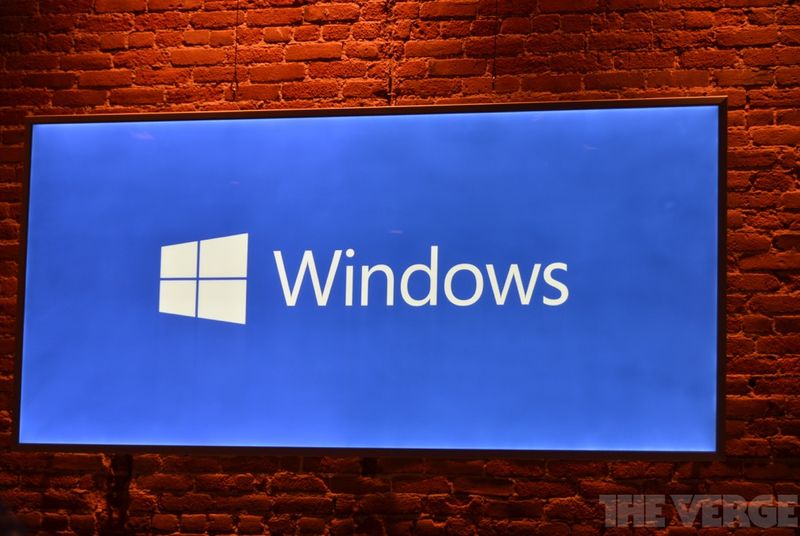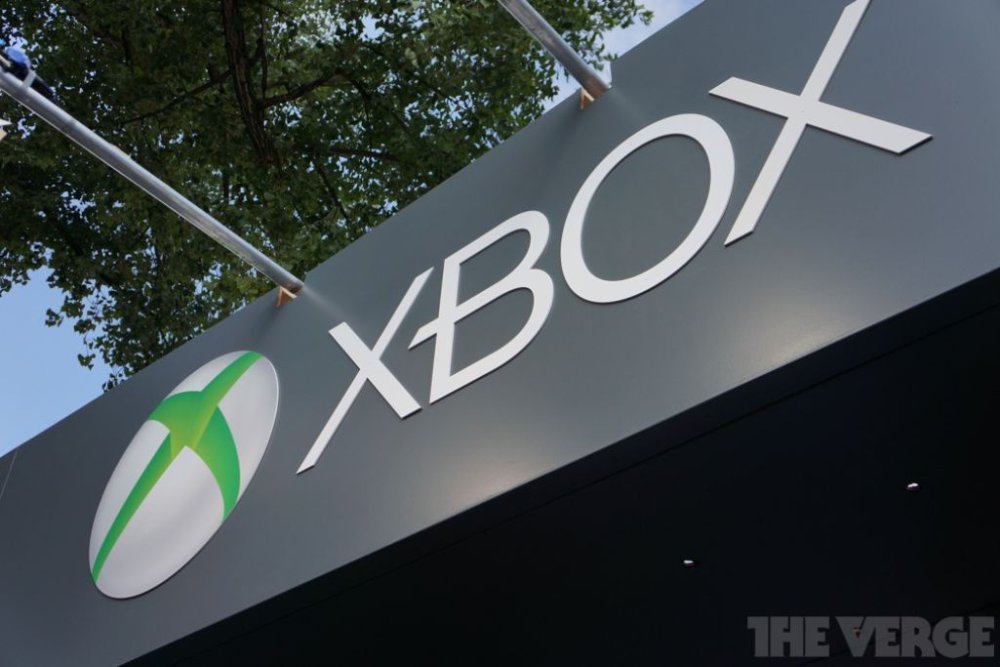-
Posts
7,278 -
Joined
-
Last visited
-
Days Won
2,416
Content Type
Forums
Blogs
Events
Resources
Downloads
Gallery
Store
Everything posted by allheart55 Cindy E
-

Should i Stay or Should I go!
allheart55 Cindy E replied to IceMan37's topic in Tech Help and Discussions
You don't use yours much either. :D -

Should i Stay or Should I go!
allheart55 Cindy E replied to IceMan37's topic in Tech Help and Discussions
This last laptop I bought is probably close to three years old and has less than 10 hours time on it, seriously. -

Should i Stay or Should I go!
allheart55 Cindy E replied to IceMan37's topic in Tech Help and Discussions
That's the one thing, and Rich knows this, I won't have an AMD laptop. Their performance sucks. -
Sent a few too many embarrassing texts last night? There's an app for that. Strings, started by Be Labs in Seattle, gives you the ability to permanently delete a text message from your phone and any phone you sent it to. Additionally, Strings requires your friends to ask your permission before downloading any photos or videos you send them. (Story continues below). A post on the Strings website describes the concept: We believe you deserve a way to spontaneously and fearlessly share your most intimate moments and personal thoughts from your smartphone. So we developed Strings. With Strings, you can say whatever you want, share any video or photograph you want, to whomever you want. And take it back if you want. And your friend, relative, workmate or partner cannot share it with anyone else. Unless you want them to. It seems like a dream come true -- and if you ask us, it kind of is -- but the phone you send the message to must have Strings downloaded as well. And Strings can't stop the person on the receiving end from getting the text in the first place. The app is also only compatible with iOS. Strings isn't the first app that aims to control smartphone screw-ups. Invisible Text lets senders see whether or not the recipient has opened their text yet, and if they haven't, the sender can delete it. Ansa is the "Snapchat of texting," meaning your texts self-destruct after a certain amount of time. And the app On Second Thought allows users to recall their texts 60 seconds after sending them and has a "curfew" feature, meaning texts can be "embargoed" until the next morning in case you've had one too many. But Strings CEO Edward Balassanian told The Huffington Post that Strings is the first messaging app that gives users total control over their content. "The challenge with ephemeral messaging apps is that they treat all content like it’s created equally, but we shouldn't have to delete everything in order to delete some things," he said. "Rather than trying to make content disappear, we sought to give users control so they would feel confident and comfortable to share what they want with who they want, in any way that they want." "Friends can download content you share, but only if you approve," Balassanian continued. "Screenshots are detected and users are banned after violating this three times. And of course, you can delete a string you create if, and when, you choose to and it will be deleted everywhere. From start to finish, users control their conversations on Strings." There are also apps out there that stop you from sending questionable texts in the first place. Designated Dialer blocks specified contacts in your phone, while Drunk Dial NO! hides designated numbers from your contacts for a certain amount of time.
-
-

Take the ClickSmart Challenge
allheart55 Cindy E replied to Rich-M's topic in Tech Help and Discussions
All it really wants you to do is download the site advisor. -
-

Should i Stay or Should I go!
allheart55 Cindy E replied to IceMan37's topic in Tech Help and Discussions
You are preaching to the choir, here. I'm strictly AMD all the way. I would definitely lose the Seagate drive, though......:D Of course, that's only my personal opinion. -
Internet Explorer, Microsoft’s ubiquitous but infamous web browser, may be on its way out. According to a recent report, Microsoft may be preparing to say goodbye to Internet Explorer as part of its Windows 10 push, building a new browser that could compete with Chrome and Firefox. Such a development would not only see Microsoft building a lightweight alternative to Internet Explorer, but enable it to start over without the years of negative perceptions that the company’s traditional browser has as its legacy. ZDNet’s Mary Jo Foley reports that while there’s been word for some time now that Microsoft would make some big changes to Internet Explorer when it rolled out Windows 10, her sources say that Microsoft is actually building a new browser, codenamed “Spartan,” which is not Internet Explorer 12. Microsoft is reportedly building Spartan as a new, lightweight browser. The desktop version of Windows 10 will ship with both Spartan and Internet Explorer 11, though Internet Explorer will be there just for the sake of back-compatibility. Foley’s sources say that Spartan will be available both for the desktop and mobile (phone and tablet) versions of Windows 10. Spartan will feel more like Chrome or Mozilla Firefox than Internet Explorer, and will reportedly support extensions. Sources say that it will use Microsoft’s Chakra JavaScript engine and its Trident rendering engine, not WebKit. Foley notes that at this point, “Spartan” is simply a code name for the browser, and her sources don’t know what Microsoft intends to call the browser when it debuts. She explains that in a Reddit Ask Me Anything, the Internet Explorer team hinted it had contemplated the possibility of changing the name of Internet Explorer just to get users to realize that the current, more standards-compliant version of the browser has significantly changed since the older, proprietary versions. Read more: http://wallstcheatsheet.com/technology/goodbye-internet-explorer.html/?a=viewall#ixzz3NmW9hX8e
-
-
Google has openly published a Windows 8.1 vulnerability that allows low-level users to gain administrator privileges. The security flaw was revealed earlier this week despite one big problem: there's still no fix from Microsoft. As such, the elevated privileges vulnerability remains a legitimate threat to some Windows customers. Google says it gave Redmond plenty of time to address the problem before the code went public on December 29th. It's been 90 days since the security hole was filed as part of Google's Project Zero initiative, which is dedicated to uncovering weaknesses in software before hackers can exploit them. Microsoft was told about the issue on September 30th, but so far hasn't managed to resolve it with a Windows software update. Disclosure timing is a topic of great debate among security experts. For its part, Google maintains that 90 days should be enough for Microsoft or anyone else in the industry to fix what's broken. "On balance, Project Zero believes that disclosure deadlines are currently the optimal approach for user security — it allows software vendors a fair and reasonable length of time to exercise their vulnerability management process, while also respecting the rights of users to learn and understand the risks they face," the company told Engadget. But in the same breath, Google made sure to note that it will be "monitoring the affects of this policy very closely," noting that "initial results have shown that the majority of the bugs that we have reported under the disclosure deadline get fixed under deadline, which is a testament to the hard work of the vendors." And while Microsoft's "hard work" may be a bit sluggish, the company says a fix for the now-public vulnerability is on the way. As its own statement notes, most users probably don't need to worry about this threat since would-be attackers must have valid login credentials and access to the very machine they're targeting. So it's not really a high priority concern for home users, though enterprise IT workers may want to be on the lookout until a fix is delivered.
-
-

A very Happy New Year to my Tech family!!
allheart55 Cindy E replied to mikehende's topic in Tech Help and Discussions
Happy New Year Everyone! -

A very Happy New Year to my Tech family!!
allheart55 Cindy E replied to mikehende's topic in Tech Help and Discussions
Happy New Year to you and your family, Mike. -

WOW 240 Gb San Disk Ssd drive-$94.99
allheart55 Cindy E replied to Rich-M's topic in Tech Help and Discussions
Great Deal! -
-
Two separate reports from people I know and trust detail Microsoft's plans for Internet Explorer in Windows 10: The software giant will actually build two versions of its flagship web browser, each with its own unique version of the Trident rendering engine. And while this is all very interesting, the real story here is Microsoft's missed opportunity to drop Trident all together and use WebKit, the rendering engine developers prefer, instead. Neowin's Brad Sams writes in a post this morning that Microsoft is forking the Trident rendering engine used by Internet Explorer. One version will be provided when the browser detects a web page that requires an older IE version, ensuring backwards compatibility. And a newer, more efficient version of Trident will be summoned for more modern web pages. I spoke with Sams about this development over the weekend and will say only that his source is clearly solid. Over at ZDNet, however, Mary Jo Foley cites a number of her own sources to provide more detail. She says that Windows 10 will actually include two web browsers, Internet Explorer and a "Spartan," the latter of which will be a more lightweight browser with support for Chrome- and Firefox-style extensibility. Based on what I'd previously heard, I believe Spartan (which is just a codename) to be a new version of the Modern version of IE that shipped in Windows 8/8.1; and you may recall that Microsoft had previously promised to support extensibility in a future version of that browser. But I also believe none of this matters in the slightest. What the web developers who create the increasingly sophisticated web sites and web apps that we enjoy every day really need is a single standard to which to write. And that standard is not HTML 5 (which is a combination of modern versions of HTML, CSS and JavaScript, and other web technologies) but rather a common rendering engine that works consistently across all mainstream PC and device platforms. That rendering engine is WebKit, which is used by the only web browsers that really matter these days: Google Chrome and Apple Safari. Yes, IE still dominates desktop web browsing. But that's the past, not the future. If you look at mobile web browser share, you see a very different story: Apple Safari represents 45 percent of all mobile web browser usage, and Chrome is number two with 21.45 percent; combine Chrome with the older stock Android browser and the figure jumps to 42 percent. Where is IE on this chart? At number four, behind Opera Mini, with 2 percent of the market. I have to think that the good folks on the IE team debated this point and would further guess that the old-timers won out in what I hope was heated argument. But any attempt to keep Trident limping along for any reason other than backwards compatibility is a mistake, and the world certainly doesn't need yet another web rendering engine. And you don't have to be young and idealistic to see that. Note: A couple of things about WebKit. I've long-expected WebKit's domination. And while Google did pull out of the alliance backing WebKit last year and essentially fork the rendering engine for Chrome, such a thing is vastly preferable to completely different rendering engines. That ship has sailed.
-
Microsoft is said to be at work on an all new web browser, codenamed Spartan, that could officially move the company away from Internet Explorer upon the launch of Windows 10. ZDNet reports that the new app is not Internet Explorer 12, the next iteration of Microsoft's longtime browser that we'd typically expect alongside another major Windows release. Instead, it seems that the company is planning to start anew with a web browser that looks and feels "more like Chrome and Firefox" according to ZDNet. But despite a new appearance (and perks like extensions), this new browser would retain the foundations of Microsoft's current web technology. The new software will continue to utilize the Chakra JavaScript engine and Trident rendering engine, so Redmond isn't suddenly switching over to WebKit, the engine used by nearly all competitors. Don't expect to see Internet Explorer vanish, though. ZDNet says that IE 11 will still come bundled with Windows 10 for backward compatibility reasons, so Microsoft will in fact be shipping two browsers with its next big operating system. The next big Windows 10 event is scheduled for January 21st; that's when we expect to hear more about the software's new consumer-facing features and Microsoft's plans for Windows 10 on tablets and phones. Could this new web browser also be on the agenda? That's still up in the air, with ZDNet reporting that Spartan may not be far enough along in development for inclusion in beta Windows builds.
-
Reports have been flowing in on Twitter today that Xbox Live and PlayStation Network — the online services connecting Microsoft's and Sony's game consoles — are experiencing outages. Occasional downtime is par for the course for both, but Christmas Day is a particularly bad time, just as hundreds of thousands of PlayStation 4s and Xbox Ones are unwrapped and set up. PlayStation✔@PlayStation Follow We're aware that some users are having issues logging into PSN - engineers are investigating 9:51 AM - 25 Dec 2014 12,876 Retweets 15,322 favorites Reply Sony's PlayStation Network currently remains offline, more than 12 hours after the first reports of outages began, though Microsoft's Xbox Live has apparently recovered and online play has resumed. Neither Microsoft nor Sony have confirmed the nature of their problems, but as Polygon reported, a hacker group identifying itself as Lizard Squad had previously threatened to take down the services on Christmas day. The group is taking credit for the outages, though it promised to stop its attacks after being handed several hundred dollars' worth of gift cards from Megaupload founder Kim Dotcom. Lizard Squad quickly sent out a tweet offering support and promotion to Dotcom's latest venture. But it's not yet clear how much involvement the group had in the downtime: some four hours after it said it had halted the attacks and "went dark," both PSN and Xbox Live services are still down. The group says the services are still suffering from the aftermath of its attack, but it's possible that the networks are just straining under the load of the new consoles gifted over the the holiday period.
-

